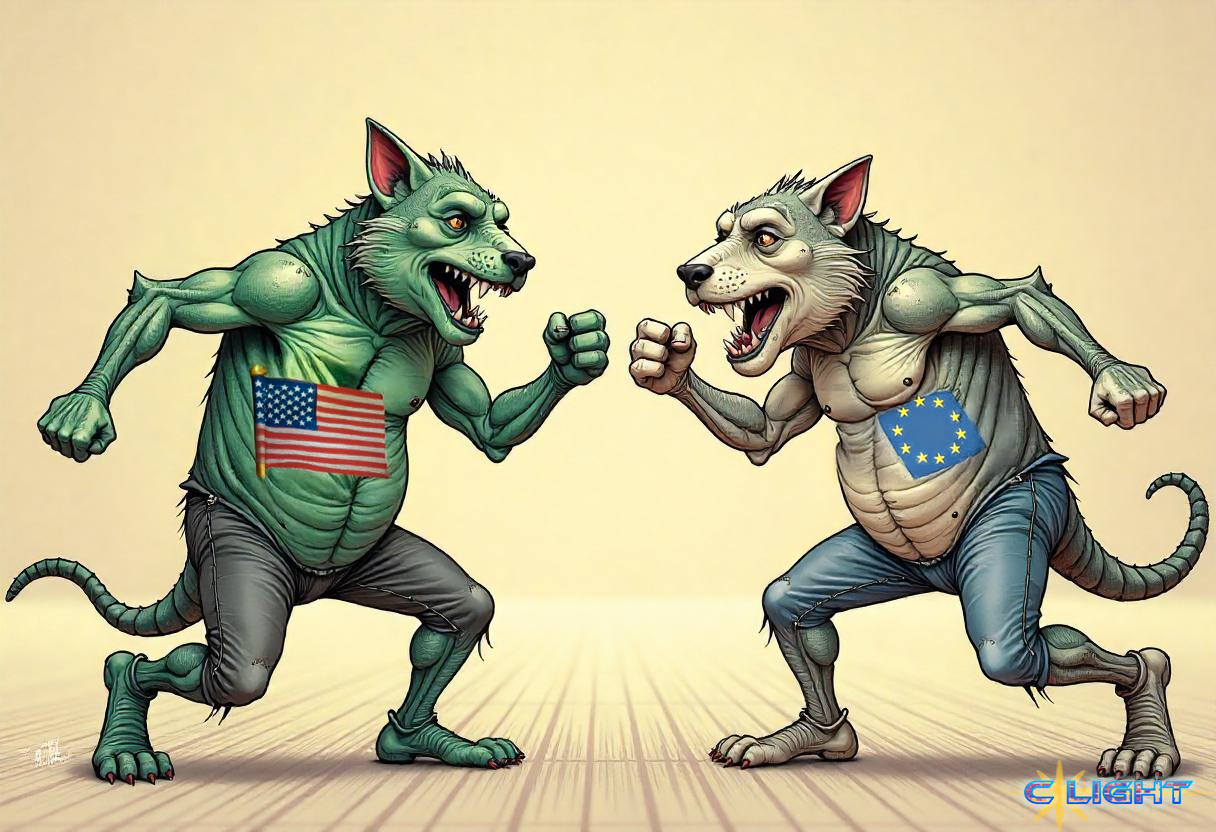If you’re too young to have experienced a tariff war before, and most of us are, then welcome to the world of tit-for-tat where everyone punches and no one ever wins. Every nation’s leader thinks they have to posture on the global stage and look tough up against the bully that is the US president. In the end, though, it’s the people on both sides who are losers. We are the ones who feel the pain, and no, it’s not just a ‘pinch’ or ‘momentary adjustment.’
When one goes to the doctor and a nurse prepares to stick a needle somewhere, they always warn that you’re going to “feel a little pinch.” What one feels largely depends on the gauge of the needle and the experience of the person inserting it. More often than not, nurses today are skilled at inserting needles in such a way that the patient may not feel anything at all. “A little pinch” is a momentary inconvenience that doesn’t affect the rest of one’s body. That’s not what is happening to the world’s economies.
Early this morning (by US time), the European Union announced that they would levy another round of tariffs on US exports, specifically targeting things such as soybeans, beef, and chicken. The tariffs are targeted toward exports that are more likely to affect Republican-majority states, with a specific swing at House Speaker Mike Johnson’s home state of Louisiana.
“We’re now in this escalating spiral,” said Carsten Brzeski, the global head of macro research at the bank ING. Expectations are that the US will almost certainly retaliate, and then the EU will feel that it needs to respond in kind. While leaders on both sides sit in luxury, people like you are forced to make increasingly difficult decisions as to which purchases are most important.
“Tariffs are taxes,” Ursula von der Leyen, the president of the European Commission, the bloc’s executive arm, said in a televised statement on Wednesday. “Jobs are at stake, prices up, nobody needs that.”
What matters is that these taxes are being levied without any direct input on the part of the people who are most affected. Tariffs don’t have any effect on the people sitting in the ivory towers of government unless the people who suffer under them set those towers on fire.
Not helping matters any is the fact that the US hasn’t exactly been anxious to negotiate with anyone. “I traveled to the U.S. last month; I was seeking constructive dialogue to avoid the unnecessary pain of measures and countermeasures,” Maros Sefcovic, the European Commission’s top trade official, said during a news briefing this week. “In the end, as it is said, one hand cannot clap. The U.S. administration does not seem to be engaging to make a deal.”
Kaja Kallas, the bloc’s chief diplomat, was supposed to meet with Marco Rubio, the US secretary of state, in Washington in late February, but Rubio canceled that meeting. The inference is that the pain and suffering of people on both sides of the Atlantic is intentional. Our governments want us to hurt. Our leaders want us to feel pain.
The EU isn’t the only country in the mix here, either. Earlier this morning, The spokeswoman for China’s Ministry of Foreign Affairs, Mao Ning, repeated Beijing’s position that recent American trade policies violate the World Trade Organization’s free trade rules. “We will take firm measures to safeguard our legitimate rights and interests,” she said. All Walmart shoppers probably want to go ahead and stock up on Chinese imports now.
Japan’s chief cabinet secretary, Yoshimasa Hayashi, said the imposition of the new U.S. tariffs without an exemption for Japan was “regrettable.” Imports from Japan are crucial to the competitiveness of American manufacturing and have significantly contributed to the U.S. economy and jobs, Hayashi said at a news conference. Any response on the part of Japan is likely to hit the already volatile technology especially hard.
With inflation still above the Federal Reserve’s 2 percent target, economists and policymakers are on high alert for anything that may rekindle price pressures and make the central bank’s job all the more difficult. The combination of new tariffs and increasing unemployment in the federal sector makes higher inflation almost a given. How high it goes before the economy completely crumbles is a delicate measure.
The measure everyone notices is egg prices. Egg prices rose 10.4 percent in February, as an outbreak of avian influenza continued to contribute to a nationwide egg shortage. That’s slightly lower than the previous month’s 15 percent surge in prices. Since last year, egg prices are up 58.8 percent. For most Americans, what they’re paying at the checkout in grocery stores is their primary measure of how government action affects them. Major purchases such as automobiles, technology, and new homes don’t come as often. Food purchases, however, are a daily item for many households. Increases feel more like a punch than a pinch.
Americans must learn to hold their elected leaders accountable for their actions. When those leaders fail to respond to civil inquiries and complaints, then it is up to the general population to engage in more demonstrative measures until the government responds appropriately. Think of it as dealing with a disobedient toddler.
There’s no set mark on how much the American economy can stand, but most people in the US are at or are nearing their breaking point. Another round of tariffs might push us all over the edge.
Discover more from Clight Morning Analysis
Subscribe to get the latest posts sent to your email.










